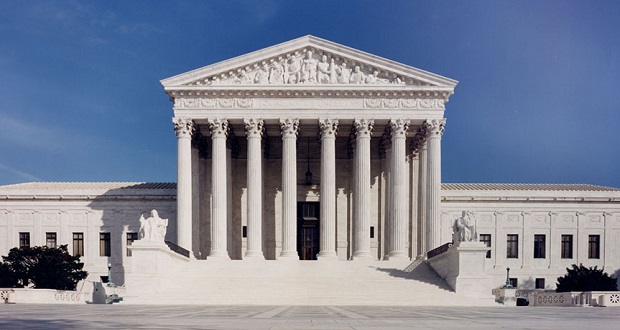
The U.S. Supreme Court recently issued a decision that affects arbitration of employment disputes, delivering a rare win against employers and setting aside a precedent from the 1st U.S. Circuit Court of Appeals.
In May 2022, the Court ruled in the case of Morgan v. Sundance, Inc., deciding that judges cannot create their own rules governing arbitration waivers.
The unanimous court reversed a decision handed down by the 8th Circuit in 2021. The lower court had held that the employee of a Taco Bell franchise in Iowa was required to show prejudice in order to establish that her employer had waived its right to arbitrate a putative class action alleging violations of the Fair Labor Standards Act’s overtime requirements.
Resolving a circuit split, Justice Elena Kagan wrote that introducing a prejudice requirement ran afoul of the plain language of Section 6 of the Federal Arbitration Act, which directs courts to apply usual procedural rules in resolving arbitration disputes.
The plaintiff, Robyn Morgan, was an hourly employee at a Taco Bell unit owned by franchisee Sundance.
Morgan argued that Sundance intentionally recorded her weekly hours inaccurately to avoid her qualifying for overtime. Even though she had signed an agreement to arbitrate employment disputes, she filed a nationwide collective action under the Fair Labor Standards Act, claiming that Sundance had violated federal overtime law.
Morgan argued that her employer had waived its right to enforce the arbitration agreement by waiting nearly eight months after she filed suit before making an arbitration demand.
During those eight months, the employer first sought to dismiss the plaintiff’s class action by claiming it was duplicative of another class action brought by Taco Bell employees that was in the process of being settled.
In its initial answer to the plaintiff’s complaint, the employer made no mention of its arbitration rights and moved to compel arbitration only after efforts at mediation and getting the plaintiff to join the other class action failed.
As observed by Kagan, the 8th Circuit was among the nine circuits that had adopted an arbitration-specific procedural rule under which a party claiming waiver must, among other things, show they were prejudiced.
Kagan cited a 2014 case from the 1st Circuit, Joca-Roca Real Estate v. Brennan, as standing for the proposition that the circuit was among those adopting the majority rule requiring a showing of prejudice.
Meanwhile, the court noted that the 7th and D.C. circuits imposed no such requirement.
Under the 8th Circuit’s test, a party waives its contractual right to arbitration if it knew of the right, “acted inconsistently with that right,” and “prejudiced the other party by its inconsistent actions.”
Rejecting the plaintiff’s waiver argument in Sundance, a panel of the 8th Circuit concluded that the employee was unable to show prejudice from her employer’s eight-month delay in invoking its arbitration rights.
But the Supreme Court found that the 8th Circuit was fundamentally on the wrong path given that the Supreme Court had clearly defined waiver as the “intentional relinquishment or abandonment of a known right.”
“To decide whether a waiver has occurred, the court focuses on the actions of the person who held the right; the court seldom considers the effects of those actions on the opposing party,” Kagan wrote. “That analysis applies to the waiver of a contractual right, as of any other. [A] contractual waiver ‘normally is effective’ without proof of ‘detrimental reliance.’ So in demanding that kind of proof before finding the waiver of an arbitration right, the Eighth Circuit applies a rule found nowhere else — consider it a bespoke rule of waiver for arbitration.”
Kagan argued that the introduction of a prejudice element in the waiver calculus ran afoul of Section 6 of the FAA, which specifically directs that an application to compel arbitration “shall be made and heard in the manner provided by law for the making and hearing of motions.”
A “directive to a federal court to treat arbitration applications ‘in the manner provided by law’ for all other motions is simply a command to apply the usual federal procedural rules, including any rules relating to a motion’s timeliness,” Kagan wrote. “Or put conversely, it is a bar on using custom-made rules, to tilt the playing field in favor of (or against) arbitration.”
 New England Biz Law Update
New England Biz Law Update
